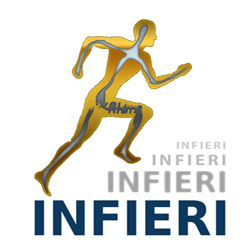INFIERI 2025
University of Pisa and INFN Sezione di Pisa

(WARNING: Be aware of online scammers claiming to make accommodation reservations on your behalf. Please ignore such emails and do not reply, click any links, or provide your credit card information. We have NOT commissioned any travel agencies to make arrangements for participants on behalf of the conference organizers.)
Welcome to the 8th Edition of INFIERI:
INtelligent signal processing for FrontIEr Research and Industry
We are excited to announce that the 8th edition of the INFIERI Summer School will take place in Pisa, Italy, from September 1 to 13, 2025. Hosted by the University of Pisa and INFN Sezione di Pisa, with the collaboration of Scuola Normale Superiore, the European Gravitational Observatory, and the University of Siena, this edition promises to continue the legacy of excellence that has defined the INFIERI series.
The INFIERI Summer School offers a unique two-week program designed for M.Sc. students, Ph.D. candidates, postdocs, and early-career researchers. The 2025 edition will maintain the school's tradition of cross-disciplinarity, covering the full signal processing chain critical for developing cutting-edge instruments in areas such as particle physics, astrophysics, nanotechnology, and biomedical engineering.
The program includes expert lectures, keynote talks, and hands-on laboratory sessions, where participants will work closely with leading scientists and industry professionals. The in-person format fosters essential interactions and collaborations, ensuring a rich educational experience. Following the success of the 2023 edition, highly skilled undergraduate students will also be invited to participate based on their academic achievements.
Join us in Pisa for an unparalleled opportunity to advance your knowledge and skills in signal processing and instrumentation.
Lectures & Hands-on Labs on Cross-disciplinary, Cutting-edge Research Fields, and High Technologies Development:
- From Astrophysics (Gravitational Waves, HelioPhysics and Sun Exploration) and Particle Physics (Beyond Higgs/Future accelerators & Quantum Experiments) to new paradigms in Nuclear Fission and Fusion.
- From Advanced semiconductors to Quantum sensing, Nano-technologies, Nano-Biology and Nano-Medicine.
- From Big Data Transfer, beyond-Moore’s-Law High Performance Computing to AI and Quantum Technologies in Science and Industry.
The TIMETABLE details the program of lectures and keynotes. It includes a brief bio of the lecturer as well as an abstract about the topic presented for each lecture or keynote. In addition, for most of the topics, a website address is given, often underlined by blue letters when defining the topic. The school attendants are thus given a detailed description of the program content.
The Hands-on Lab BOOKLET is available on the file: here below as well as on the other related INDICO pages and on the website front page.
Target audience: M.Sc., Ph.D., postdoc-level physicists and engineers.
POSTERS PRIZES:
A record number of 42 posters were presented at this year edition: There was a large number of excellent posters and very good presentations; they reflect the cross-disciplinary content of the school also expanding from theoretical to instrumental topics in most of the domains covered in this school. All are posted in the school timetable (13 September).
The winners are:
- 1st Best Poster: Esther Constanze WAIS, Hamburg University, DE, for
A novel Low Gain Avalanche Diode design: MARTHA
- 2nd Best Poster: Giuseppe Mattia Amato, Integrated Science Program, Northwestern University, Department of Chemistry, Northwestern University, Evanston, IL, USA., for
Electrolyte-Tunable Confined Polyamine Transport in Carbon Nanotube Arrays
3rd Best Poster: Pengxu Li, School of Physics, Zhejiang University, CN, for
Radiation-Hardened Electronics Designs for a CMOS Image Sensor
- Honour Award: Hamza Hasnaoui , Department. of Industrial Engineering, University of Trento and INFN-TIFPA, IT, for
Squeezed-Vacuum States for enhanced Quantum Metrology
